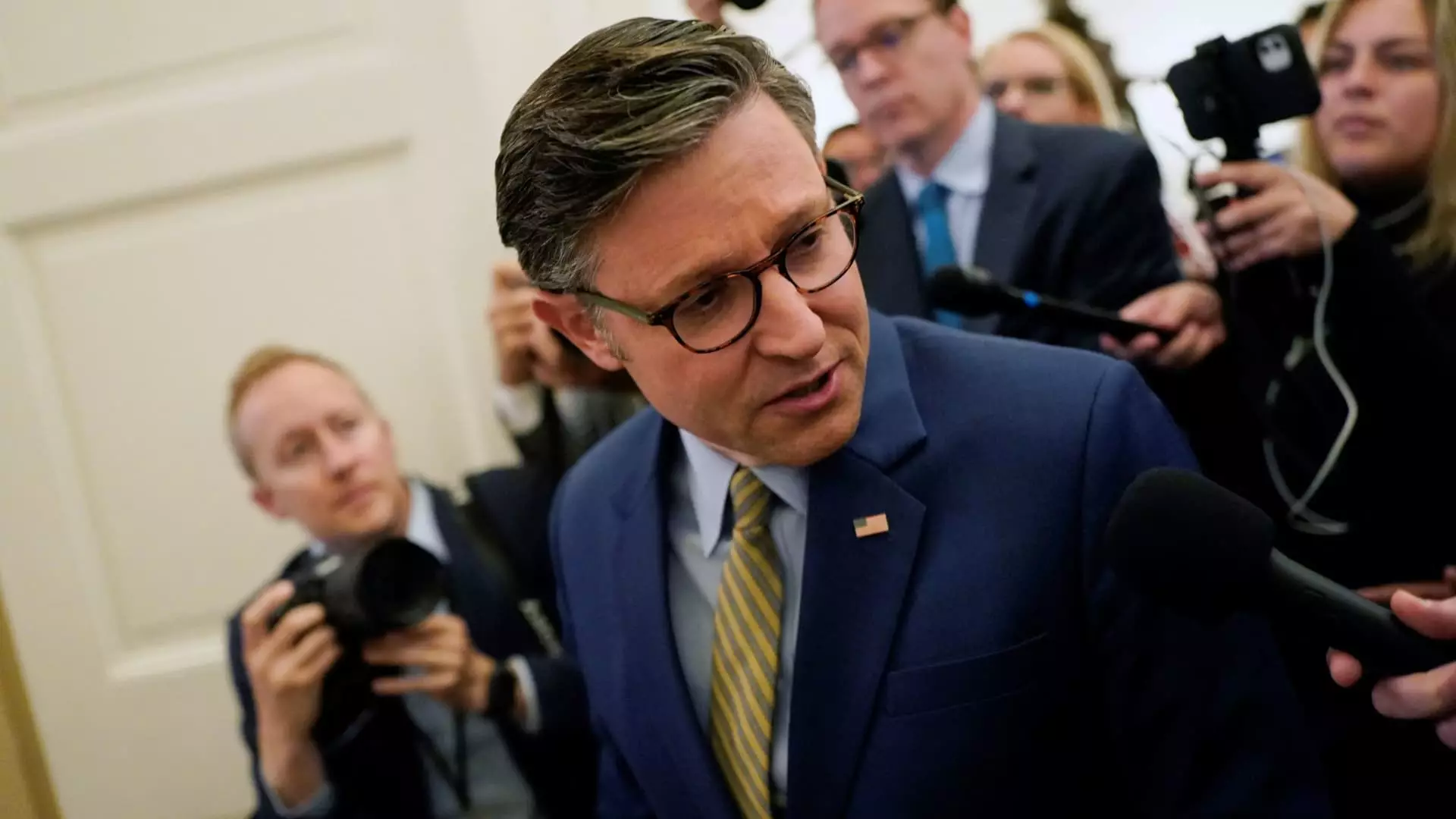House Speaker Mike Johnson’s recent triumphalism following the passage of what he dubbed the “big, beautiful bill” is not just a rhetorical flourish but a stark indication of the growing chasm between political ambition and fiscal reality. By proclaiming it the “largest cut in spending in at least 30 years,” Johnson presents a façade of responsibility that crumbles under scrutiny. The reckless approach toward fiscal policy is alarming, particularly in light of the Congressional Budget Office’s (CBO) projection—a staggering $3.8 trillion increase in deficits over the next decade. To chant “drastically overstated” in response to this sobering analysis is not just irresponsible; it is a deliberate choice to ignore economic fundamentals in favor of political expediency.
The Fiscal Hawks in Dismay
Even within the Republican Party, where Johnson holds sway, dissent is brewing. Prominent fiscal conservatives like Senator Ron Johnson are raising legitimate concerns about the long-lasting impacts this bill may have on federal finances. The irony is heavy: a party that once prided itself on fiscal conservatism is now flirting with multi-trillion-dollar deficits. Senatorial skepticism poses a critical challenge to Johnson’s agenda, reminding us that not all the elephant’s supporters are on board with this audacious gamble. It serves as a wake-up call; fiscal prudence shouldn’t be sacrificed for short-term political victories.
Furthermore, this insistence on downplaying potential consequences reflects a misplaced belief that tax cuts—which, let’s be clear, primarily benefit the wealthiest—will magically stimulate the economy. Johnson’s claim that “U.S. manufacturing onshore is being incentivized” sounds optimistic, but without solid grounding in reality, it can easily morph into wishful thinking. The trickle-down economics narrative continues to disintegrate as evidence mounts that wealth concentration only serves to widen inequality rather than uplift the working and middle classes.
The Unseen Hand of Presidential Pressure
Underneath the surface lies the most unsettling aspect of this legislative circus: the overt pressure from a sitting president. Donald Trump’s intervention in the passage of this bill was not merely a show of loyalty but an indication of the level of control the executive holds over legislative priorities. The echoes of his call to action reverberate ominously through Washington’s halls, blurring the lines between legislative independence and executive influence. Such dynamics raise profound questions about the health of American democracy and the extent to which individual representatives are beholden to party leaders rather than the constituents who elected them.
In essence, Speaker Johnson is attempting a high-wire act that teeters dangerously close to the edge. His insistence on limiting changes to the bill by the Senate reflects a fragile ruling majority that could collapse under the weight of economic reality. The narrowness of the Republican hold on the House means that even minor shifts could derail this ambitious, yet precarious, legislative endeavor. The echoes of past fiscal crises loom large, and the stakes have never been higher as we observe this shaky gamble unfold. This isn’t just a question of budgetary arithmetic; it’s a tussle over the soul of economic governance in America.


Leave a Reply